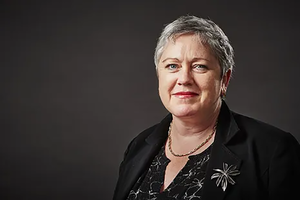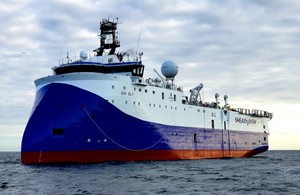Billions of harmful plastic bags have been stopped from blighting our towns and countryside thanks to the single-use carrier bag charge, new figures reveal today (29 July).
The 5p charge was introduced in supermarkets in 2015 and since then usage at the main retailers has dropped by a staggering 97%. Meanwhile, over £200 million has been voluntarily donated by retailers to good causes in that time.
As a result of the charge, the average person in England now buys around three single-use carrier bags a year from the main supermarkets, compared with around 140 in 2014.
The charge was last year increased to 10p and extended to all businesses. This has helped further bring the number of bags used down by over 20% from 627 million in 2019/20 to 496 million in 2021/22.
Environment Minister Steve Double said:
Our plastic bag charge has ended the sale of billons of single-use bags, protecting our landscapes and ensuring millions of pounds is redistributed to worthy causes.
There is much more to do to tackle the problem of plastic waste. That is why we are building on our single-use plastic bans and introducing the deposit return scheme for bottles to fight back against littering and drive up recycling rates.
The number of single-use carrier bags reported by the main retailers was 197 million in 2021/22, down from 271 million in 2019/2020, the previous comparable year* – a reduction of 27%. This is a huge drop from the 7.6 billion used in 2014 before the charge was introduced.
In 2021/22, retailers donated £10 million to good causes in education, arts, heritage, sports, environment, health, charity or volunteering sectors, or causes chosen by customers and staff.
Adam Herriot, Sector Specialist, Resource Management, WRAP said:
Flexibles remain one of the most common plastics in our bins, but just like pots tubs and trays we’re now at a point where the tide is turning on flexible plastics. Today, nearly 5,000 stores nationwide have front of store collections where people can drop off their unusable bags once they reach their end of life.
So not only do we have less single-use shopping bags to worry about, we have somewhere convenient to put them when we go shopping to make sure they are recycled.
This builds on the government’s action to turn the tide on plastic waste.
This year we introduced a world-leading plastic packaging tax, while our deposit return scheme will ensure billions more drinks bottles and cans are returned to shops and recycled.
We have already banned microbeads in rinse-off personal care products and restricted the sale of plastic straws, stirrers and cotton buds.
We have consulted on banning single use plastic cutlery, plates and certain types of polystyrene cups, and are also looking at evidence on other problematic single use plastics – including wet wipes.
*It is important to note that the data for 2020/21 cannot be directly compared with other years, due to unique circumstances relating to the Covid-19 pandemic.



